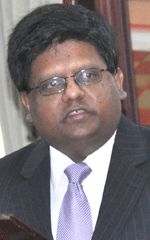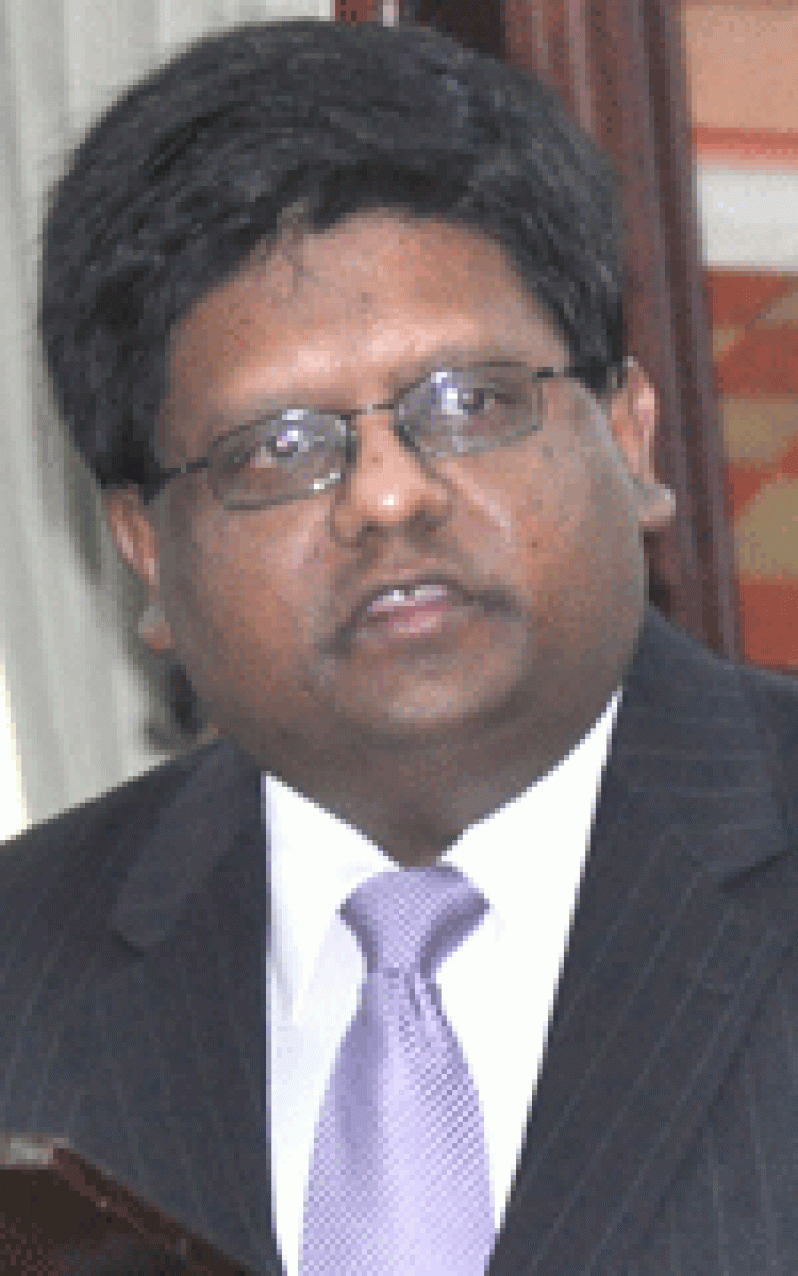“THE progress made in Guyana in strengthening the economy and improving key social indicators is not accidental, but instead is the result of a deliberate policy stance, exercising responsible choices when confronted with testing policy options, sustained implementation in oftentimes challenging circumstances, and the strong support of our development partners.”
 This was the report presented to the Caribbean Development Bank (CDB) at the opening of its 43rd Annual Meeting of the Board of Governors held in St Lucia yesterday, by Guyana’s Minister of Finance, Dr Ashni Singh, who used the opportunity to remind officials that the bank remains one key partner in Guyana’s developmental thrust.
This was the report presented to the Caribbean Development Bank (CDB) at the opening of its 43rd Annual Meeting of the Board of Governors held in St Lucia yesterday, by Guyana’s Minister of Finance, Dr Ashni Singh, who used the opportunity to remind officials that the bank remains one key partner in Guyana’s developmental thrust.
Dr Singh did however lament the fact that Guyana’s views with concern the recent downgrading of the Bank’s credit rating.
“These are all developments that must be arrested and reversed forthwith, and we urge directors and management to take all necessary steps to accomplish this.”
According to the minister, “The Region has real and urgent needs, and the Bank has an indispensable role to play in helping to meet these needs.”
Reflecting on Guyana’s involvement with the CDB and its support locally, Dr Singh said that it “continues to prove its worth as a reliable partner in Guyana’s development efforts, with investments in our country’s physical infrastructure and education sectors featuring prominently in the Bank’s portfolio in Guyana.”
He noted that in the area of physical infrastructure, the Bank approved last year a US$34M loan to finance the rehabilitation of the West Coast Demerara Road.
This road, he reported to the bank officials, serve as “a major highway linking large residential, commercial, and agricultural communities.”
That loan, according to Dr Singh, was incidentally “the single largest project approved by the Bank in 2012.”
He said too that in addition, the US$16M loan to finance improvement of community roads in several coastal villages is currently in an advanced stage of implementation and will significantly improve living conditions in the targeted villages.
In education, Dr Singh reported that the completion and bringing into operation of two new Technical and Vocational Education Training (TVET) centres under the US$7M TVET project last year have already resulted to date in 390 young men and women commencing training courses, at least 50 percent of whom will complete their training this year and immediately enter the work force.
“Projects funded by grant resources administered by the Bank continue to be a critical component of our financing portfolio, and the Basic Needs Trust Fund (BNTF) is foremost amongst these,” said Dr Singh.
That fund, Dr Singh reported, has supported projects in health, education, water and sanitation, infrastructure and skills training, throughout the length and breadth of Guyana.
“The projects under implementation with Bank support in Guyana are a manifestation of the unique position occupied by the Bank as the premier indigenous regional development institution, resourced with world class expertise in the practice of development, incomparably equipped with the local knowledge and the advantages of proximity, and strategically poised to be responsive to Caribbean circumstances and needs as an effective intermediary of development resources and facilitator of development results.”
Dr Singh said that it is with these expectations in mind, “as we turn more widely to the Bank’s operations across the entire spectrum of its membership, we note with concern the 38 percent decline in gross loans, equity and guarantees approved, the 41 percent decline in loan disbursements, and the 377 percent reduction in net transfers resulting in negative net transfer of resources to borrowing member countries for the first time since 2000.”
He reminded also that the rededicated energies of the Bank in supporting the achievement of improved macroeconomic conditions in the borrowing member countries, including maintaining, achieving or returning to fiscal and external sustainability, remains critical to ensuring that targeted poverty interventions have the intended effect.
According to Dr Singh, it is in this context that he wished to reiterate and strongly urge the need for a viable and practical strategy for Caribbean development.
“The Bank is much more than a lending institution…it is a uniquely endowed regional repository of expertise, especially on development matters.”
As such Dr Singh said that the incomparable regional resource must be mobilised in aid of a more effective response by our Region, “to the thus far elusive quest for lasting development and prosperity.”



.jpg)









